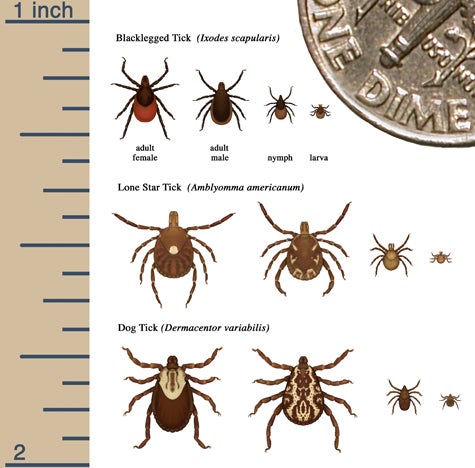It’s tick season. Here’s what you need to know.
Published 9:46 am Friday, May 13, 2022
Warm weather doesn’t just bring back fun in the sun, sandy beaches, boating at the lake and lazy days in the shade. It also breeds ticks – those nasty little critters that work to bloat themselves with its host blood and hang on with a grip of steel.
Yikes.
Ticks may be small, but they pack a big punch when it comes to diseases. Ticks can cause all kinds of illnesses, including the very interesting and dangerous alpha-gal syndrome, where you end up allergic to red meat and are susceptible to deadly anaphylaxis.
A deer tick bite could leave you with Lyme Disease, a bacterial infection that starts with a rash, fever, headache and fatigue, but can turn into an infection that spreads to your joints, heart and nervous system. That is why prompt treatment is vital.
What a tick could do to you, your pets and your livestock isn’t a laughing matter – take the threat seriously with the following dos and don’ts:
- Protect yourself by wearing EPA-registered repellants. Pre-treat hikingand hunting gear with permethrin. Tuck pants into boots or socks. Shower immediately after being outside.
- Perform tick checks on yourself and your pets after spending time outside.If your pet begins to stumble and seem out of sorts, check the ears for a tick pressing on a vital nerve.
- Disrupt the ticks’ lifecycle through reducing tick-friendly areas near your home. Take this advice about how to landscape to avoid tick infestations:
- Remove leaf litter.
- Clear tall grasses and brush around homes and at the edge of lawns.
- Place a 3-ft wide barrier of wood chips or gravel between lawns and wooded areas to restrict tick migration into recreational areas.
- Mow the lawn frequently.
- Stack wood neatly and in a dry area (discourages rodents).
- Keep playground equipment, decks and patios away from yard edges and trees.
- Construct fences to discourage unwelcome animals such as deer, raccoons and stray dogs from entering your yard.
- Remove old furniture, mattresses, or trash from the yard that may give ticks a place to hide.
- The CDC recommends removing ticks by using clean, fine-tipped tweezers to grasp the tick’s head as close to your skin’s surface as possible, pulling upward with steady, even pressure. After removing the tick, clean the bite area and your hands with rubbing alcohol or soap and water. Never crush a tick with your fingers.
Ticks are very active in warm weather and the disease of greatest concern in Mississippi is Rocky Mountain spotted fever, which can be severe or even fatal without treatment in the first few days of symptoms.
If you experience a sudden fever following a possible tick bite (even one you may not be aware of), or after being in areas with ticks, see a medical professional as soon as possible.






